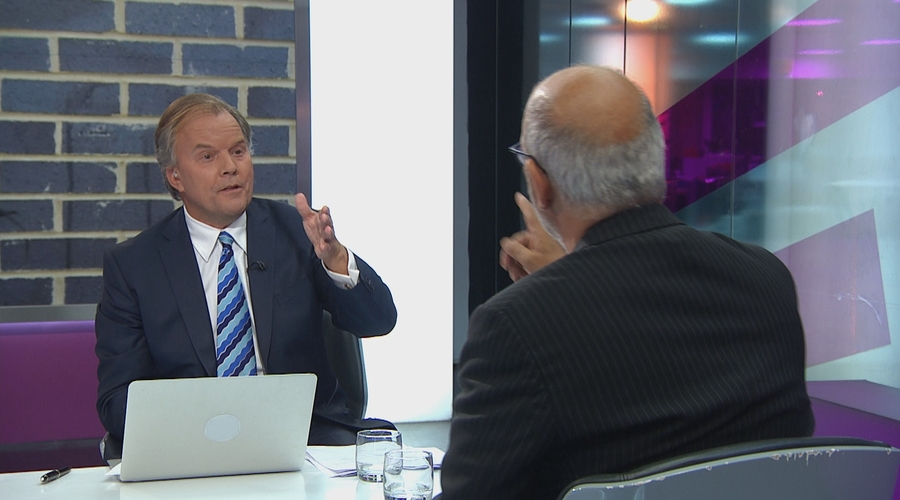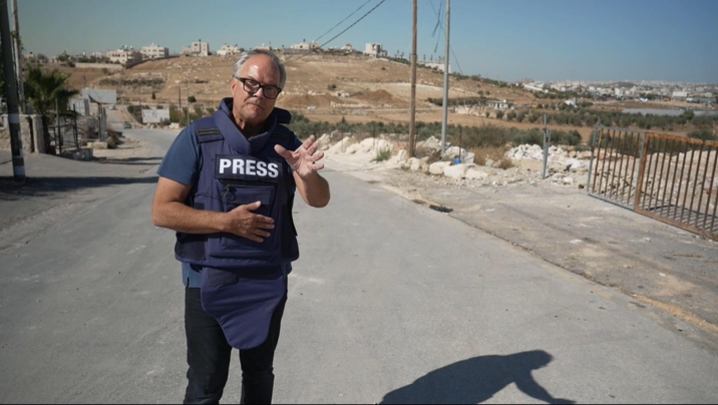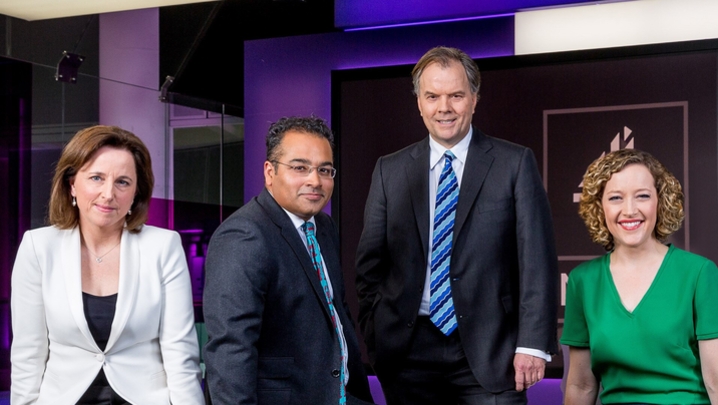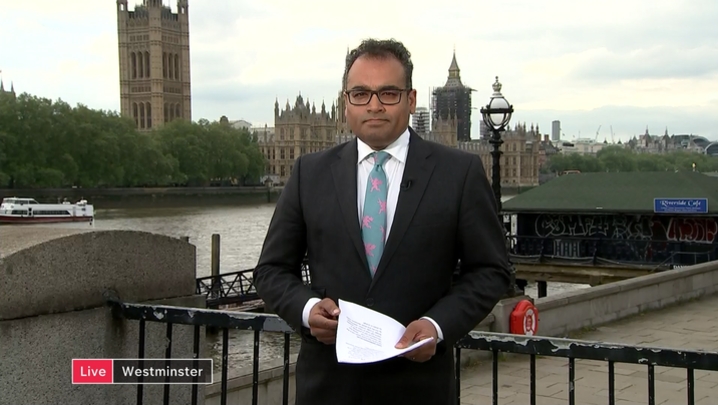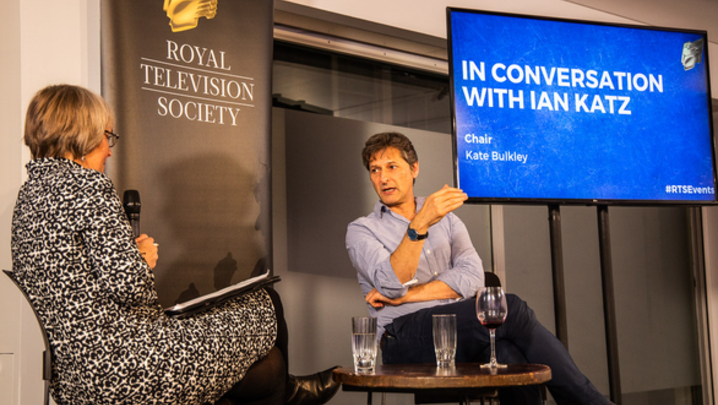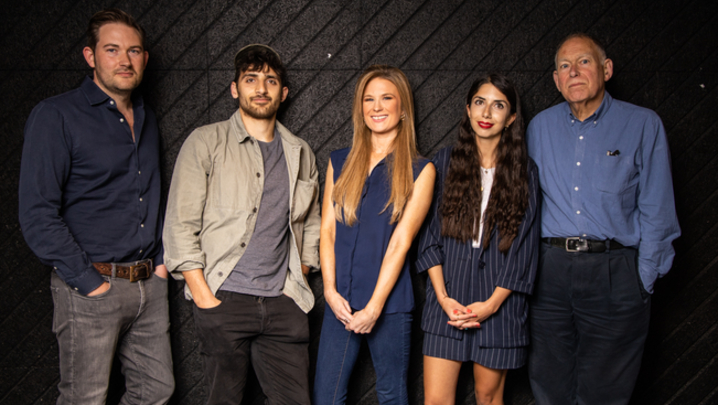“This bloke is very good at peddling stuff that is wrong, and I think we have to be very careful. That is fake news. It is an untruth. It is a lie.”
After a year on the campaign trail, Channel 4 News’ Matt Frei knows better than most the risks posed by the new US president, and the difficulties he presents the media.
“For us journalists, the tricky balancing act we have to perform in the next few years is being aware […] we no longer share the same assumptions about wealth creation, liberalism, [and] the nature of democracy [as much of the public],” Frei warns.
What is interesting about the Trump win is that for the majority of voters, a candidate with “dynastic appeal” is no longer enough. “It was repulsive to them,” he explains.
“It was the same feeling I had for Obama in 2008 – that here is a collection of people who are carried by a faith and by a momentum to elect a candidate in whom they have invested a lot of emotional energy, whether it is hope or rage, and in their mind this person can do no wrong.”
The success of Trump, Frei believes, comes down not to what he says, but to the reaction he gets. “The more outrageous Trump was - and the more we were upset by that, or people like us, the metropolitan elite – the more his supporters lapped it up. It was proof of authenticity to them.”
That is what gave such weight to Trump’s remark that he could shoot someone on Fifth Avenue in New York City and get away with it.
“He was absolutely right metaphorically,” says Frei. “When Pussygate [happened], I assumed that was it. It’s over. Curtains. The exact opposite happened – including among female voters.”
It puts the media in a difficult situation: how do you respond to a public that despises you on principle?
“The challenge is that we have to question that rage [of the people] without being sneering about it. We can’t dismiss it as not being real, but we also cannot think of it as sacrosanct. Rage is not its own justification,” Frei says.
Part of the solution, he believes, is to extend ‘beyond the beltway’, that is, beyond the big capital cities like Washington, DC. “The New York Times, having shut down its regional bureaus, is thinking or resurrecting them."
"With Channel 4 News we are constantly thinking about more deployments outside of London. [But] it is not just about putting yourself in a different location, it is about a different mindset,” he finishes.
That is where it becomes harder for the individual journalist, he says. “I am not asking people not to be offended by it, because it is just offensive. I’m sorry to say, it may not be a very neutral statement, [but] if the headmaster of my kid’s school had been overheard saying these things, I would want that man to be removed from the headship of the school.”
The sudden rise of ‘Fake News’ also spells trouble for journalists like Frei.
“A lot of people around Trump are trying to tell us that Fake News is a difference of opinion. No – there are facts and there are non-facts, there are facts and there are lies, there are truths and there are lies,” he protests angrily.
“If I am in a position where, in a year’s time, I could say ‘You know what? Maybe the inauguration crowd wasn’t as small as my eyes told me at the time…’ That’s bad! I don’t care how angry you are about people like me, that’s just wrong. If we don’t get that, what is the point of us?”
Nor does he have any time for people who cry ‘fake news’ at the media. “Most of us thought Hillary Clinton would win based not on a desire to see her win [but] on the mindset that you can’t possibly win an election if you say outrageous things about women and a whole range of demographics. That’s not fake news. That’s just being wrong!”
The distrust is insidious, he says, as things have proceeded to a point where “whatever we point out, because we are pointing it out, it immediately seen as a lie by the other side.”
Journalists must rise to the challenge, Frei insists. “You can’t stop pointing it out because at some point you might be believed.”
“This, I’m afraid, is where it becomes very difficult to be neutral as a journalist,” he admits. “We are dealing with a fundamental erosion of the values that have kept us safe and prosperous and free for the last 70 years. That is what this is about."
“The moment is urgent, and it requires good journalism that is neither condescending nor apologetic.”
Neutrality is the backbone of journalism, he says, but what that means is uncertain. “Is it acceptable neutrality to say: on the one hand the Jewish population of Germany is telling us that they are being locked up and persecuted, and on the other hand we’re being told by the government that they are a virus that needs to be exterminated? Is that acceptable to you?” he asks.
“We’re human beings. What do we think is right? Are these acceptable norms of behaviour or not?”
"We are dealing with a fundamental erosion of the values that have kept us safe and prosperous and free do the last 70 years."
Acceptable according to whom however? “According to the society that I grew up in,” he says. “In my society it is unacceptable to be racist, it is unacceptable to mock people with mental disabilities, it is unacceptable to brag about sexual assault, it is unacceptable to lie.”
Trump is not entirely to blame for the damage done to political language. “The rot arguably started long before [Trump], arguably with Bill Clinton. He besmirched the Oval Office with his behaviour [and] by inference character became less important [in a President.]”
“We have always been told [when] covering America that the character of the President is fundamentally vital,” Matt Frei remembers
That is where Matt Frei truly gets irate. “This man is in charge of a lot of stuff, has pharaonic powers of extinction over humankind. You want that person to be sound of character.”
“You don’t want the bad guys to be in charge. Bad behaviour is judged on a variety of levels and with Trump… they all flag up red. End of argument.”
That’s not to say that Frei allows his personal beliefs to come in the way of his journalism. “My job as a reporter is to find out why you’re pissed off. My job is not to agree with you, or to agree with those reasons – or even to disagree necessarily.”
Much of Frei’s anger seems to come from the affection he holds for America as a whole. Having spent around 10 years as the BBC’s North America Editor, he views the place with a great tenderness.
“It is one of the most accessible countries for a television journalist to work in the English language. There’s something quite interesting about a country where so much of it is familiar: yellow cabs, yellow school buses, American cops…” he recalls.
“But within those very recognisable features, great drama happens in very quotable English. As a TV journalist, there is nothing more you could hope for.”
Matt Frei was named RTS Television Journalist of the Year at the RTS Television Journalism Awards 2017.
Read interviews with his fellow nominees Krishnan Guru-Murthy and Jeremy Bowen. See the winners here.

